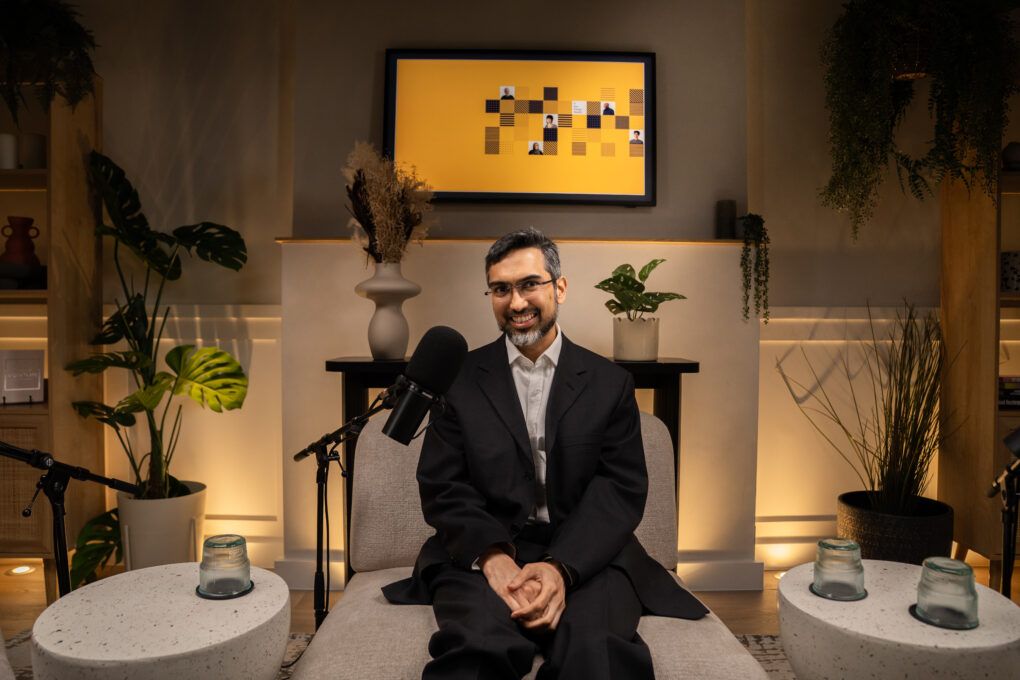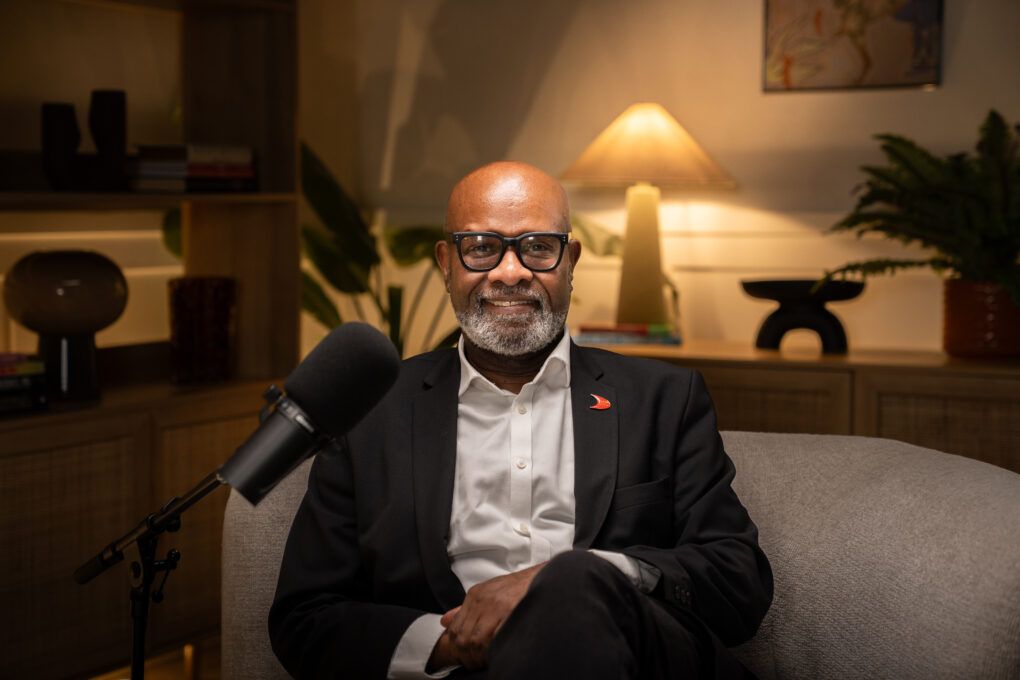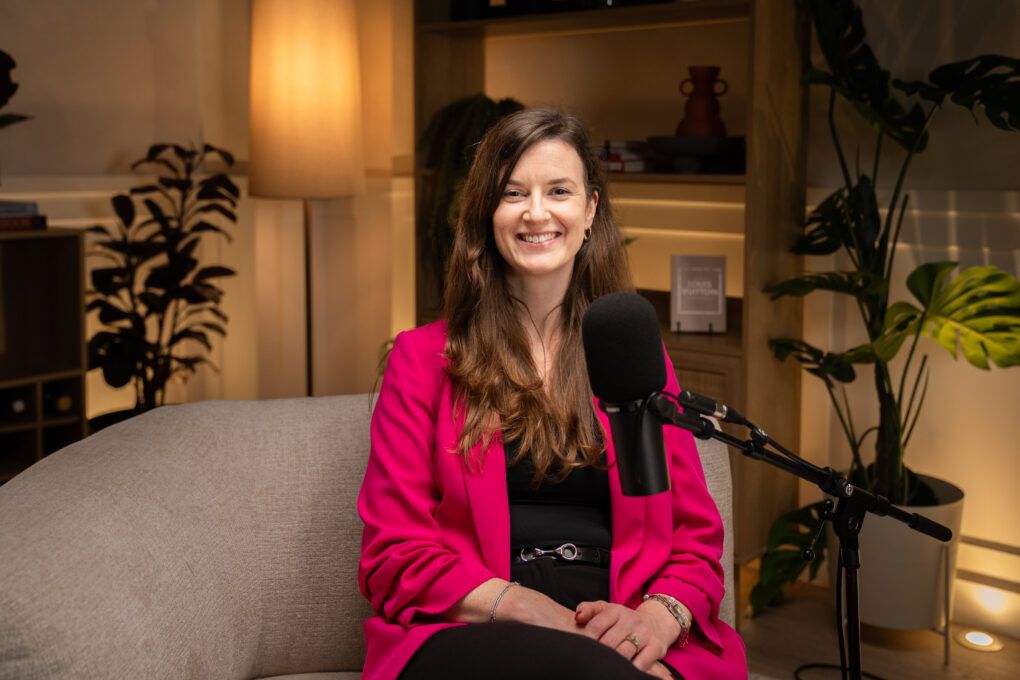Watch our latest Q&A event for volunteers in London
Last week, we held a live Q&A event for Our Future Health volunteers who live in London.
The session was hosted by our Chief Executive and Chief Medical Officer, Dr Raghib Ali OBE, and our Chief Compliance and Integrity Officer, Fiona Maleady-Crowe. They were joined by guest speaker John James OBE, Chief Executive of the Sickle Cell Society.
Almost 8,000 people tuned in to hear an update on our programme, from volunteer numbers to the latest research that’s analysing Our Future Health’s data.
It was the second in an ongoing series of live events, following our inaugural event in the West Midlands earlier this year.
Our progress in London

Following an introduction by Fiona, Raghib spoke about his years working in A&E and how he realised that many serious conditions – from heart attacks and strokes to cancers and kidney failure – are often preventable if caught early enough.
“Our Future Health was created to find new ways to prevent, detect and treat disease earlier, by following up to 5 million volunteers over time and combining information about their lifestyle, environment and genetics to support medical researchers,” he said.
Since launching back in 2022, more than 2.5 million people across the UK have joined our programme, including almost 400,000 volunteers in London. We’ve opened clinics in over 70 locations throughout the nation’s capital, to make it easier for people to book an appointment nearby and take part.
“London was always going to be a really important region for us,” said Raghib. “It’s the most ethnically diverse part of the country, and it’s much younger on average than the rest of the country too. They’re both groups that historically have been under-represented in this type of research.
“The response from people in London to Our Future Health has been incredible. But we still need more volunteers here – so please do invite your friends and family to take part in the programme.”
Sickle cell disorder and diversity in data

Viewers also heard from guest speaker John James OBE, Chief Executive of the Sickle Cell Society. John is a member of Our Future Health’s Diversity and Inclusion Advisory Board, and shared his insight into sickle cell disorder and why building a diverse data set matters.
John then picked up the conversation around diversity. As a member of our Diversity and Inclusion Advisory Board, he’s passionate about making sure future health discoveries work for everyone.
He explained that sickle cell disorder shows how a lack of diverse representation in the past has led to gaps in our knowledge. Sickle cell disorder is the UK’s most common genetic blood condition, experienced by almost 20,000 people. However, there are only two licensed treatments currently available.
“Sickle cell predominantly affects people from African and Caribbean backgrounds,” said John. “Racism and structural inequalities in healthcare have contributed to the lack of attention, research and support the condition has received.
“Our Future Health is an important opportunity to change that picture by ensuring people from diverse backgrounds, including those with sickle cell or carrying the sickle trait, are fully represented in the data set.”
Your questions answered

The event concluded with a Q&A session, covering topics such as health feedback, keeping our data set safe, and how to continue lowering barriers to participation by building trust and maintaining a genuine, long-term dialogue with our volunteers.
“It’s important to remember that Our Future Health is a research programme rather than a health check, so volunteers don’t receive immediate feedback or results,” said Raghib.
“Instead, their questionnaire answers, clinic measurements, blood samples and linked NHS records are combined to create a powerful, de-identified resource for approved researchers.”
He revealed that more than 500 researchers are now registered with Our Future Health. There are roughly 50 studies already in progress, looking at topics such as physical activity and heart disease, the impact of vaping, shift work and asthma, and the potential causes of mental health conditions.
Fiona went on to emphasise the long-term nature of our programme. “Large studies can take years to deliver their biggest insights,” she said. “But the scale and diversity of Our Future Health has the potential to shift the NHS towards a more preventive model and reduce health inequalities in London, and across the UK.”
We’re now planning more webinars for our volunteers in the future, geared towards a different region of the country each time.
We’ll email invites to volunteers living in different regions as we go, with the next webinar currently planned for volunteers in the south of England.

Let’s prevent disease together
By volunteering for Our Future Health, you can help health researchers discover new ways to prevent, detect and treat common conditions such as diabetes, cancer, heart disease, stroke and Alzheimer’s.